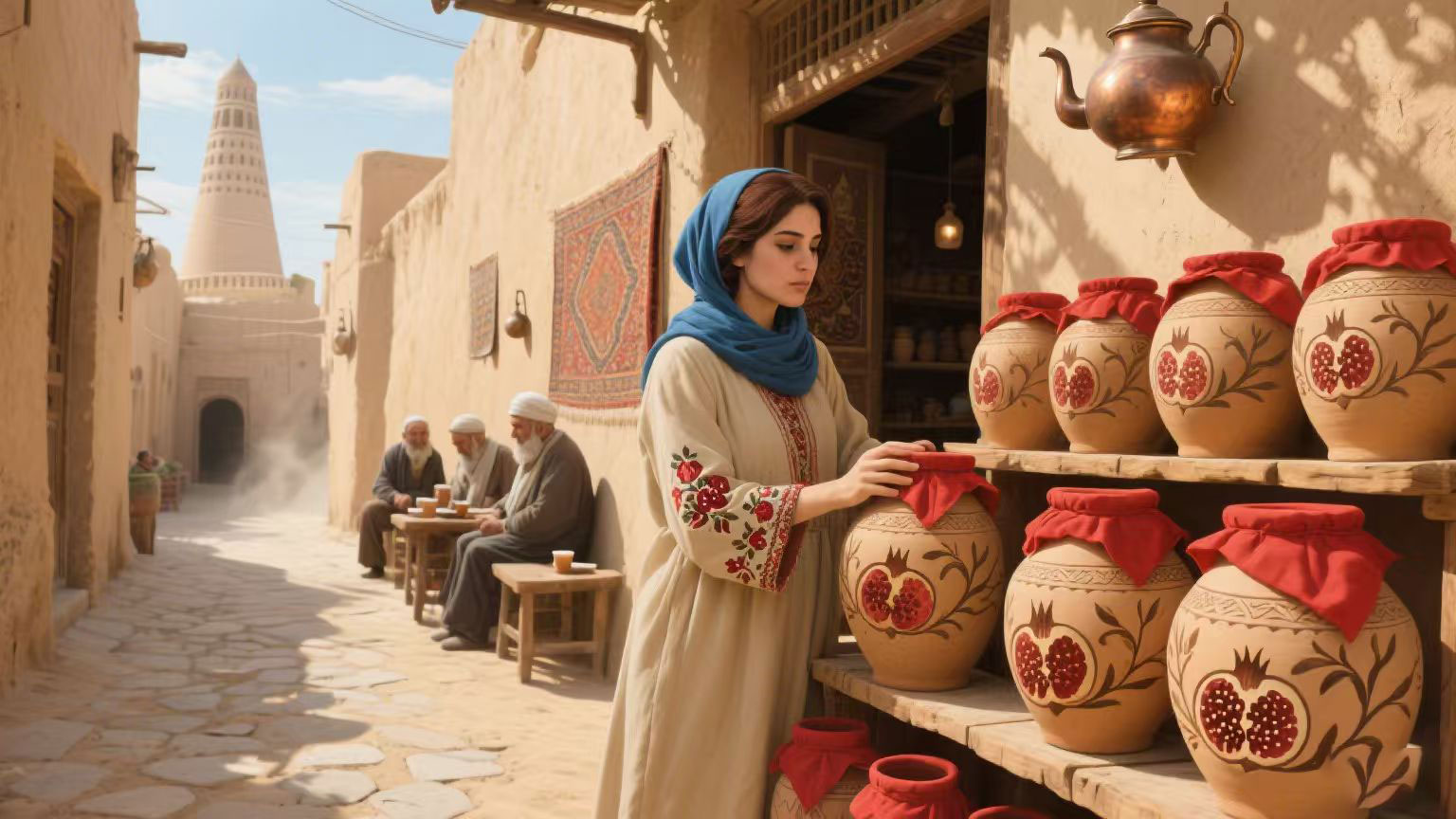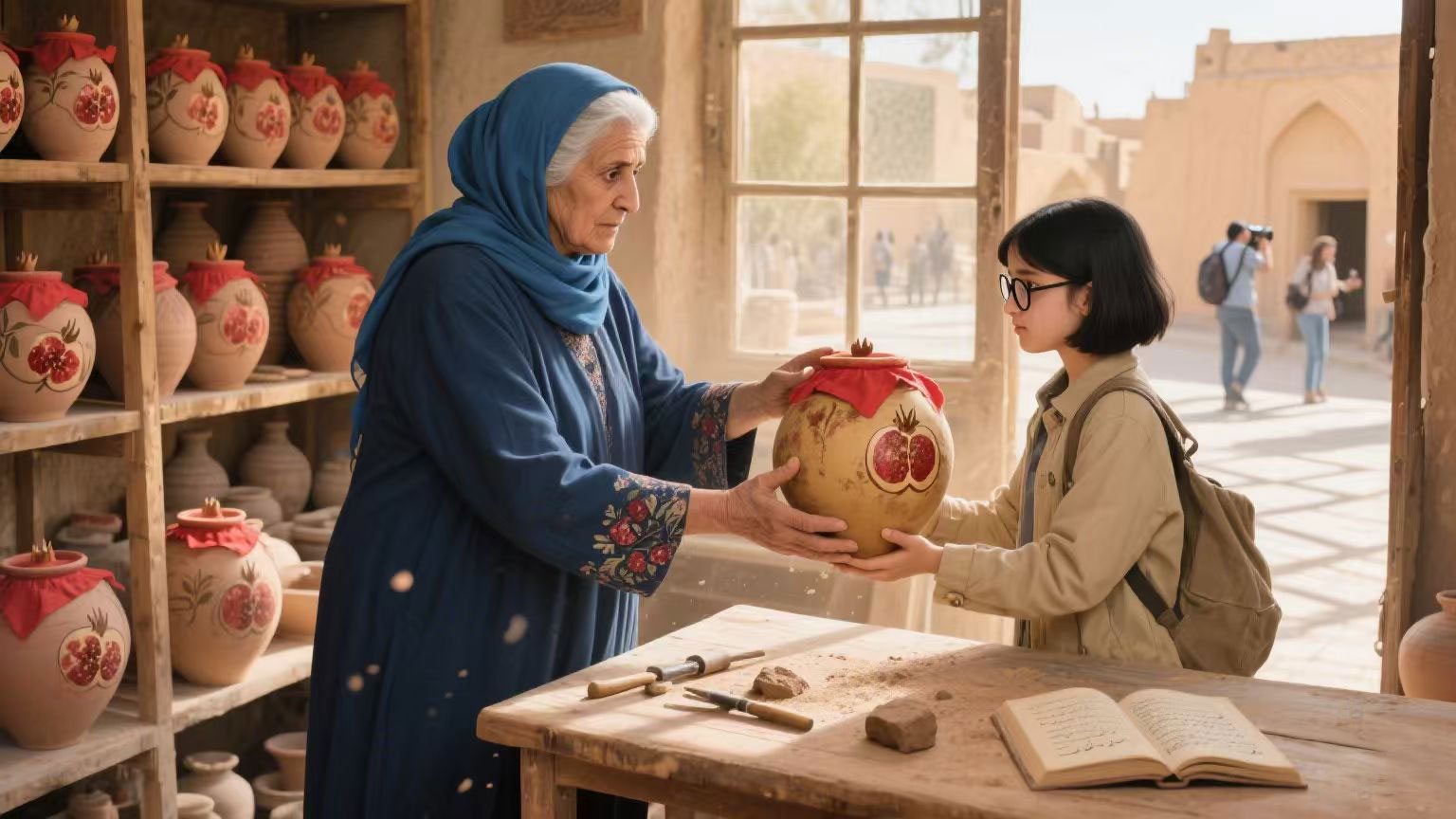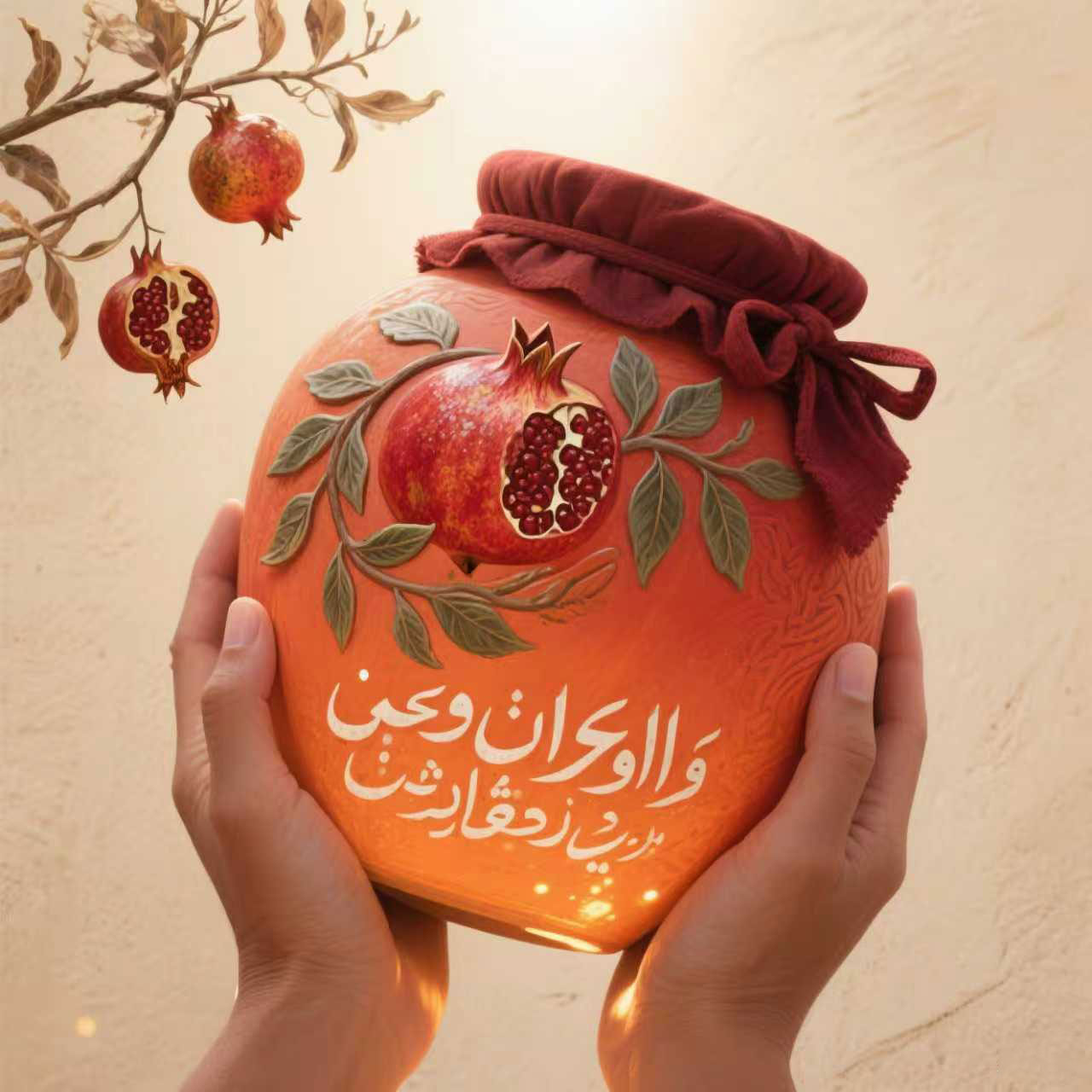+86-13516938893
Menu
global purchase
In the ancient city of Yazd, nestled in central Iran, hot winds carrying the grit of the desert sweep through its maze-like alleyways. Beside the old teahouse at the alley’s entrance lives a potter named Leila. Her workshop always displays a row of plump, pomegranate-patterned clay jars, their mouths tied with red cloth—from afar, they look like clusters of ripe pomegranates hanging on a trellis. Locals say these jars hold "summer that never fades."

Leila’s grandfather was once a potter for the Persian royal court, renowned for blending pomegranate juice into clay to fire jars that carried a subtle fruity fragrance. But what stayed etched in Leila’s memory all her life was the small, palm-sized jar her grandfather pressed into her hands on his deathbed—its surface carved with half-bloomed pomegranate flowers, and inside, a yellowed piece of paper bearing a line of Persian script: "True preservation is letting time bloom within the clay."
At twenty-five, Leila met Hamid, a poet from Tehran who’d come to collect stories. He would sit in the corner of the teahouse, penning poems as he watched Leila knead clay, remarking that her fingers "could make the earth remember the shape of sunlight." When autumn arrived and pomegranates ripened, Hamid helped her squeeze the juiciest fruits into juice, mixing it into her clay: "This way, the jars will carry your warmth." They made a promise: once Leila’s pomegranate jars gained recognition at the Persian Arts Festival, they’d journey to Shiraz together to see the rose valleys.
But three months before the festival, Hamid was in a car accident on his way back to Tehran. Going through his belongings, Leila found an unfinished poetry collection; on the last page, he’d sketched her kiln, with a note beside it: "I want to hide a whole autumn’s moonlight in her pomegranate jar."

From that day on, Leila’s jars featured a new design—alongside pomegranates, delicate laurel branches now twined around the clay. She fired Hamid’s poems into ceramic shards, inlaying them at the bottom of each jar, then filled the jars with dried pomegranate seeds from that year. When old customers asked, "Won’t food spoil in these jars?" Leila smiled and shook her head: "They don’t hold food. They hold memories that never lose their color."
Thirty years passed, and Yazd became a tourist attraction. A young girl with glasses stepped into the workshop, holding a faded pomegranate jar: "My grandfather said on his deathbed that he bought this in Yazd fifty years ago, and there’s an unfinished poem at the bottom." Leila took the jar, her fingertips brushing the faint script on its base—and recognized Hamid’s half-written line. The girl explained, "My grandfather was a poet. He spent his whole life searching for a potter who made jars with pomegranate juice."
Sunset streamed through the workshop window, casting light on two pomegranate jars: one old, crisscrossed with age-worn cracks; one new, its last petal just carved into place. Leila set the girl’s jar beside the kiln, adding a log to the fire: "Tonight we’ll fire a new batch. Let the flames finish the poem he never got to complete."

That night, the kiln burned brighter than usual. The jars that emerged glowed with a warm orange-red tint, like sunset fused into clay. Leila carved the full poem into the base of a new jar and handed it to the girl: "True preservation isn’t locking time away. It’s letting time meet new lives within the clay."
Today, young people in Yazd know to seek out Leila’s pomegranate jars with poems at the bottom. Those words, steeped in years of clay and memory, let anyone who opens the jars catch a whiff of something timeless—the scent of pomegranates from fifty years ago, and a promise that time could never scatter.